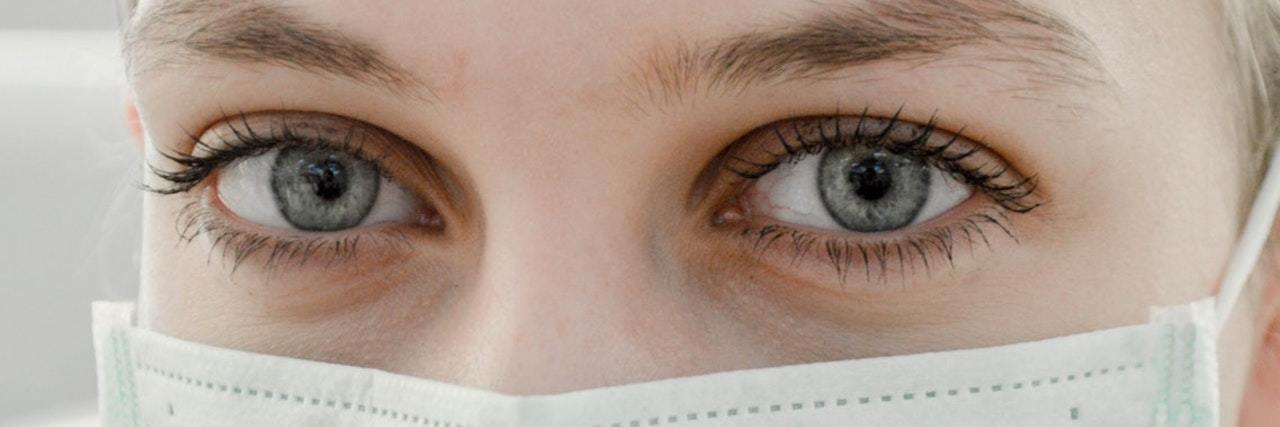I am a nurse.
However, I am a nurse who has dealt with mental illness almost my entire life. I spend my days treating the physical symptoms of my patients and dealing with my own mental ones. I constantly have anxiety about doing something wrong, hurting a patient or missing something important.
I struggle.
I put on what my husband and I refer to as my “nursing persona” to get through the days — be happy and smiling for my patients and come home to deal with my anxiety and depression. Some days, the effects of my patient’s situations are too much for me to handle and I lash out at home. I get angry and irritable, but I know that this is due to the horrible situations I encounter and the emotional rollercoaster they put me on.
I work as a home health nurse and I visit patients in their home every day. I go into the most lavish homes and I’ve treated patients in their cars because they don’t have a home. I see patients who have simple wounds and are otherwise fine, I see young people dying of cancer while holding their toddler and I see patients who have many different disease processes and refuse to take care of themselves.
What astounds me about this is the ability of us health professionals to push those emotions aside and not allow ourselves to feel the trauma that these situations cause. So many of us likely have trauma from the things we have seen, yet we don’t talk about it. We choose to pretend like those feelings don’t exist. But I don’t have that choice. I don’t get to forget about the patient who was 30 years old, had three children and died of cancer while at my service. I feel every bit of that emotion and sometimes, it completely wrecks me.
I was diagnosed as a teenager with general anxiety disorder (GAD) and depression. I choose to not take medication anymore because the medicine made me feel like a zombie. But in choosing this, I have had to learn how to cope with my career choice and all the emotional hell it brings. Here are some things I have learned to help me along the way:
1. Deal with the emotions that each situation causes.
Don’t allow yourself to keep it inside. If a situation makes you upset, then you should talk about it. I personally use my husband as my sounding board to talk about the horrific things I see and deal with. He is an amazing support and always allows me to cry if I need to. We all have those patients who touch us emotionally and I’ve learned it best to release that emotion.
2. Ask for help.
So many companies these days offer employee assistance programs, especially healthcare providers. They know that what we deal with is hard and can cause some serious mental repercussions. Take advantage of the program and seek some help if you are feeling overwhelmed, burnt out or mentally exhausted.
3. Find a healthy activity that helps you release stress.
One of the biggest concerns I have is stress management. I have recently discovered yoga and have found it to be extremely calming, especially when I combine it with guided meditation. I force myself to breathe through the exercises and focus on my breathing while I do this to clear my head. It is an excellent stress reliever!
4. Avoid stimulating foods/drinks while feeling anxious.
I know this may seem odd, but when I am feeling extremely anxious and my mind is going a thousand miles an hour, coffee makes it worse. I choose hot water with honey and lemon or decaffeinated teas/coffees. It is so calming.
5. Journal your experiences.
In healthcare, we are limited in what we can write down. We are restricted by HIPPA laws from sharing any information about our patients, so blogging is generally not an option for us. However, I can journal about my feelings or my experience with a patient. I write daily about emotions I felt and the situation behind the patients. It’s a form of release for me. I release the day after each journaling session.
I know so many people struggle with health care professionals not understanding or empathizing with their mental illness. I see it all the time with my patients and I choose to empathize, sympathize and offer as much advice as I can to them.
Please know that not all health care professionals view mental illness secondary to physical symptoms. I know how difficult it is to get out of bed every day or to constantly worry that something horrible is going to happen. I deal with those same emotions every day and then add emotional rollercoaster of nursing on top of it. I know the struggle that you are going through, because I’m going through it as well. I see you, I see what you are going through and know that if you are ever a patient, I will be there for you. I took an oath to do no harm to my patients and to me, that is just as important mentally as it is physically.

